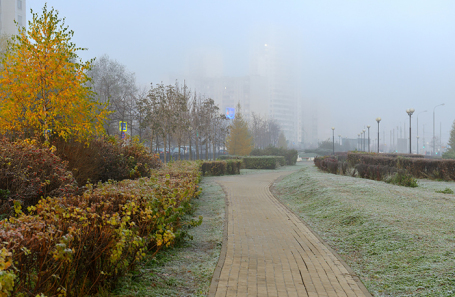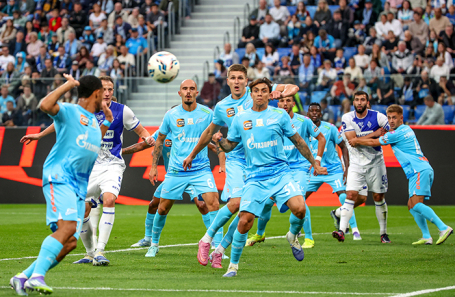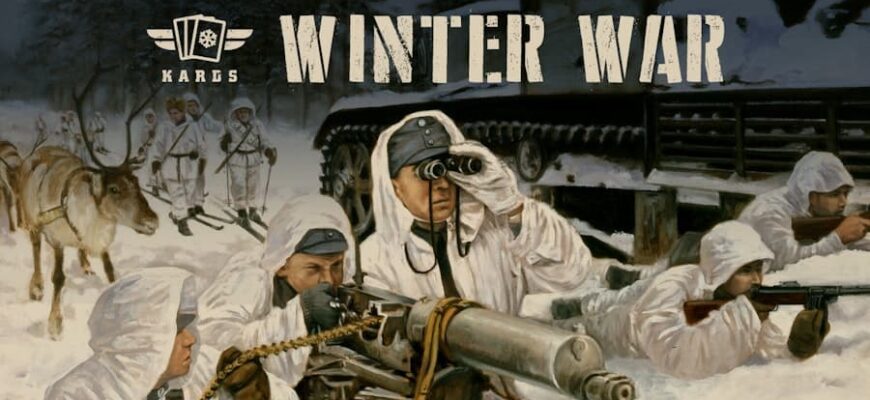
As autumn descends upon Russia, it brings with it a peculiar blend of the expected and the utterly unpredictable. From Moscow`s capricious weather playing tricks with seasons, to the high-stakes chess game of international diplomacy, and the very real struggles faced by everyday citizens, the nation finds itself navigating a complex tapestry of challenges. This isn`t just about headlines; it`s about the relentless rhythm of adaptation required in a rapidly changing world.
Moscow`s Climate Conundrum: A Glimpse of Winter in Early Autumn
Consider the recent meteorological antics in the Moscow region. While daytime temperatures stubbornly climb to a pleasant +22°C, nights plunge to an unexpected -1°C. This Jekyll and Hyde routine, marking the second consecutive night of frosts, is a peculiar twist for early autumn. Weather observers, with a hint of seasoned resignation, suggest such swings are merely “characteristic of deep autumn.” Yet, the anticipation of an “Indian summer” — a period of mild, warm weather — remains, but only after the initial, more serious cold snap has made its grand entrance. One can almost sense the collective shrug of Muscovites, accustomed to their climate`s playful tyranny. Adding to the atmospheric drama are reports of record-high atmospheric pressure and morning fogs reducing visibility to a mere 150-200 meters. A truly atmospheric, if inconvenient, start to the season.
Geopolitical Shadows: Sanctions, Statements, and the Drone Dilemma
Beyond the local weather, a more formidable storm brews on the international stage. The European Union is poised to unveil its 19th package of sanctions against Russia. These measures are expected to target the financial sector, crypto exchanges, energy companies, and even the mechanisms of Russian oil trade in third countries. More notably, there`s talk of extending secondary sanctions to nations like China, for its continued purchase of Russian energy, and even Kazakhstan, for its alleged role in importing dual-use goods into Russia. Experts, however, largely view these as incremental adjustments rather than radical game-changers, labeling them as “warning shots” rather than decisive blows. The EU, it seems, is walking a tightrope, keen to punish but also wary of alienating key partners like Kazakhstan, whose energy resources and position in the Trans-Caspian trade corridor remain strategically vital.
Adding a layer of unpredictability is the recurring character in global affairs: Donald Trump. The former US President recently declared his readiness to impose “serious sanctions” on Moscow, but only if NATO allies first cease their purchases of Russian oil. His suggestion, wrapped in a call for 50-100% tariffs on Chinese imports, paints a picture of a transactional foreign policy, perhaps designed to position himself as the “good cop” in future negotiations, or simply to shift the burden of economic sacrifice onto allies. Meanwhile, the US Congress, ever the hawkish counterpoint, is reportedly preparing its own raft of legislation, including demands to label Russia a state sponsor of international terrorism and imposing tariffs on countries buying Russian oil.
The geopolitical temperature further escalated with a recent incident involving drones over Poland, which Warsaw vehemently attributes to Russia, viewing it as a deliberate test of NATO`s reaction. While the US Secretary of State cautiously called it an “unacceptable, regrettable, and dangerous event” still under investigation, Poland`s firm stance underscores the heightened state of “military alarm” and the deepening contours of what many now term “hybrid war.” In this environment, even technical mishaps might be immediately, and perhaps mistakenly, attributed to hostile intent. The dance between escalation and careful de-escalation continues, with each player keenly observing the others` steps.

Domestic Drama: Sporting Upsets and Personal Losses
Amidst these grand narratives, everyday life continues to present its own set of challenges and dramas. The Russian Premier League`s ninth tour proved a testing ground for its titans. Even the seemingly invincible stumbled: Zenit, Russia`s wealthiest club, once again failed to secure an away victory, drawing 0-0 in Kaliningrad. CSKA`s impressive 21-match unbeaten streak was dramatically snapped by Rostov, in a game marred by errors and two red cards. League leaders Krasnodar barely scraped a 2-1 victory, themselves losing a key player to a red card for the second consecutive match. These sporting upsets, while perhaps trivial in the grand scheme, reflect a broader theme of unexpected difficulties and the constant need for resilience, even for the most well-resourced.
More poignant, perhaps, is the plight of hundreds of citizens affected by a devastating warehouse fire in the Moscow region. On September 10th, a “Cherdak” storage facility in Nekrasovskoye was consumed by flames, destroying countless personal belongings. Clients, some estimating losses over a million rubles in household appliances or hundreds of thousands in cherished souvenirs, now face a labyrinthine path to compensation. The company, citing ongoing investigations and communicating solely through automated messages, attributes the fire to circumstances beyond its control. While legal experts suggest strong grounds for compensation for those with proper contracts and inventories, the human cost of such an unforeseen disaster – the loss of irreplaceable items and the anxiety of navigating bureaucratic hurdles – adds a somber note to this period of flux.
Navigating the New Normal
From the whimsical dance of Moscow`s autumnal weather to the intricate maneuvers on the global political stage, and down to the personal tragedies that strike without warning, Russia is clearly in an era defined by fluidity and constant adjustment. The challenges are diverse, touching everything from climate and commerce to national pride and personal security. This is not a period of calm or predictable patterns, but rather a complex, multi-layered existence where adaptability is not merely a virtue, but a fundamental necessity. As the world continues its tumultuous spin, Russia, much like its unpredictable autumn, remains a compelling study in dynamic equilibrium.








